Title: Faculty Experts on 2014 Ebola Crisis: Cultural Competency and Immigration
Lorem ipsum dolor sit amet, consectetur adipiscing elit, sed do eiusmod tempor incididunt ut labore et dolore magna aliqua. Ut enim ad minim veniam, quis nostrud exercitation ullamco laboris nisi ut aliquip ex ea commodo consequat. Duis aute irure dolor in reprehenderit in voluptate velit esse cillum dolore eu fugiat nulla pariatur.
Georgetown faculty can comment on cultural and linguistic competency in health and health care, the cultural implications of the Ebola crisis, and other topics.
To arrange interviews with these experts, please contacttheOffice of Communications.
Faculty experts include:
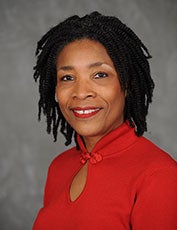
Tawara Goode
Tawara Goode is the director of the National Center for Cultural Competence in the Center for Child and Human Development at Georgetown University Medical Center. She is a nationally and internationally recognized thought leader on cultural and linguistic competency in health and health care and can address general issues related to the cultural implications of the Ebola crisis. She notes that the cultural beliefs and practices among the diverse populations in the affected countries of Liberia, Sierra Leone and Guinea influence how people understand the virus, its causes, what will stop its transmission, reliance on traditional or indigenous healers and acceptance of Western medicine.Other considerations in addressing the Ebola epidemic include the role of culture in how prevention and risk reduction messages are created and disseminated and who are thecredible voices that are trusted to deliver such messages.Goode describes“cultural brokering” – a health care intervention that uses cultural and health science knowledge and skills to bridge cultural divides and promote optimum health and well-being – as a key element in addressing crisisneeds.

Katherine Marshall
Katherine Marshall has worked for four decades in international development, focusing on the world’s poorest countries. She is a senior fellow at Georgetown’s Berkley Center for Religion, Peace and World Affairs and visiting professor in the School of Foreign Service. In addition to teaching that focuses on ethical dimensions of international development, she is engaged in various research projects on ways in which religious beliefs, institutions, and leaders affect international development.
Areas of expertise: international development, ethics

Susan Martin
Susan Martin is the Donald G. Herzberg Professor of International Migration and serves as the director of the Institute for the Study of International Migration in the School of Foreign Service at Georgetown. She also directs the certificate in Refugee and Humanitarian Emergencies program, designed for graduate students at the university, and the certificate in International Migration Studies, designed for mid-career professionals. Previously she served as the executive director of the U.S. Commission on Immigration Reform, established by legislation to advise Congress and the President on U.S. immigration and refugee policy, and as the director of Research and Programs at the Refugee Policy Group.
Areas of expertise: migration, immigration, emigration, humanitarian crises, disasters, conflict
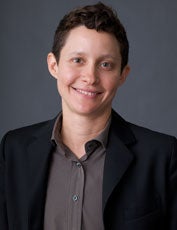
Allegra McLeod
Allegra McLeod’s research and teaching interests include criminal law and procedure, immigration law, international and comparative law, and legal and political theory. She received a J.D. from Yale Law School, Ph.D. and M.A. from Stanford University and B.A. with highest honors and Phi Beta Kappa from Scripps College of the Claremont Consortium. She also completed a postdoctoral fellowship in political theory at Stanford University. Prior to coming to Georgetown, McLeod practiced immigration and criminal law at the California-Mexico border as an Arthur Liman Public Interest Fellow and staff attorney with the ABA Immigration Justice Project.
Areas of expertise: refugee/immigration
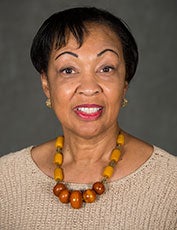
Gwendolyn Mikell
Gwendolyn Mikell is a professor of anthropology and foreign service. She served as director of the African studies program in the School of Foreign Service 1996-2007, and she was senior fellow for African Studies at the Council on Foreign Relations 2000-2003. She has been president of the African Studies Association, U.S.A. (1996-97) and a senior fellow at the U.S. Institute of Peace, member of the Institute for Advanced Study at Princeton. Mikell also has been a fellow at the Smithsonian Museum of African Art, the Institute for African Studies at the University of Ghana-Legon, St. Augustine University in Tanzania, Institute for Social Research at the University of Natal in Durban-South Africa and the Institute for Developing Economies in Tokyo. As a political and economic anthropologist, her research interests focus on African political and economic transitions, democratization and peace and the political and religious dynamics of African women’s organizations. She has been involved on Ghanaian and Nigerian issues for many years, both through research and practice.
Areas of expertise: Africa, Ghana, Nigeria, Tanzania, South Africa
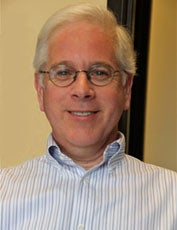
Andrew Schoenholtz
Andrew Schoenholtz directs the Human Rights Institute, the Certificate in Refugees and Humanitarian Emergencies, and the Center for Applied Legal Studies, the asylum clinic at the Georgetown University Law Center. He is also the Deputy Director of Georgetown University’s Institute for the Study of International Migration. He has taught courses on Refugee Law and Policy, Refugees and Humanitarian Emergencies, and Immigration Law and Policy, as well as a practicum on the rights of detained immigrants. Prior to teaching at Georgetown, Professor Schoenholtz served as Deputy Director of the US Commission on Immigration Reform. He also practiced immigration, asylum, and international law with the Washington, DC law firm of Covington & Burling. He has conducted fact-finding missions in Haiti, Cuba, Ecuador, Germany, Croatia, Bosnia, Malawi, and Zambia to study root causes of forced migration, refugee protection, long-term solutions to mass migration emergencies, and humanitarian relief operations.
Areas of expertise: human rights, refugee/immigration
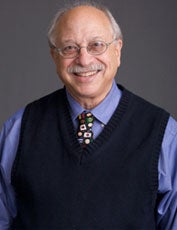
Philip Schrag
Philip Schrag teaches Civil Procedure and Professional Ethics and he directs the Center for Applied Legal Studies, in which students represent refugees from persecution who are seeking asylum in the United States. Before joining the Law Center faculty in 1981, he was assistant counsel to the NAACP Legal Defense Educational Fund, Consumer Advocate of the City of New York, a professor at Columbia University Law School, and Deputy General Counsel of the U.S. Arms Control and Disarmament Agency, from which he received a Meritorious Honor Award in 1981. Professor Schrag has also had a distinguished and varied career in civic service, which has included positions as a delegate to the District of Columbia Statehood Constitutional Convention in 1982, an editor and consultant on consumer protection during the Carter-Mondale transition, a consultant to the New York State Consumer Protection Board, a consultant to the Governor’s Advisory Council of Puerto Rico, an advisor to the Committee of Chinese Legal Educators, and an Academic Specialist for the United States Information Agency in the Czech Republic and Hungary.
Areas of expertise: refugee/immigration

Scott Taylor
Scott Taylor’s research and teaching focus on African politics and political economy with a particular emphasis on business-state relations, private sector development, governance and political and economic reform. His articles have appeared in a number of political science and area studies journals. He is also the author of four books: Politics in Southern Africa: Transition and Transformation with Gretchen Bauer; Culture and Customs of Zambia; Business and the State in Southern Africa: The Politics of Economic Reform; and Globalization and the Cultures of Business in Africa: From Patrimonialism to Profit. Taylor has served as consultant for numerous organizations, including USAID, the African Development Bank, the World Bank and the Carter Center. He has lived in both Zambia and Zimbabwe, and traveled widely throughout the continent. Taylor has also served as an election observer in a number of African countries, including Zambia, Nigeria, Mozambique, Ghana and Liberia.
Areas of expertise: African politics, African political and economic reform
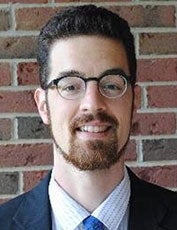
Alexander Thurston
Alexander Thurston specializes in the study of Islam in Africa, particularly Islamic thought and politics in West Africa and connections between West Africa and the wider Muslim world. He joined the African studies program at Georgetown in fall 2014, offering courses on Islam in Africa, Politics and Society in West Africa and other topics. He was a 2013-2014 International Affairs Fellow with the Council on Foreign Relations, in which capacity he served at the Department of State as a Desk Officer for Nigeria in the Bureau of African Affairs.
Areas of expertise: Africa, Nigeria